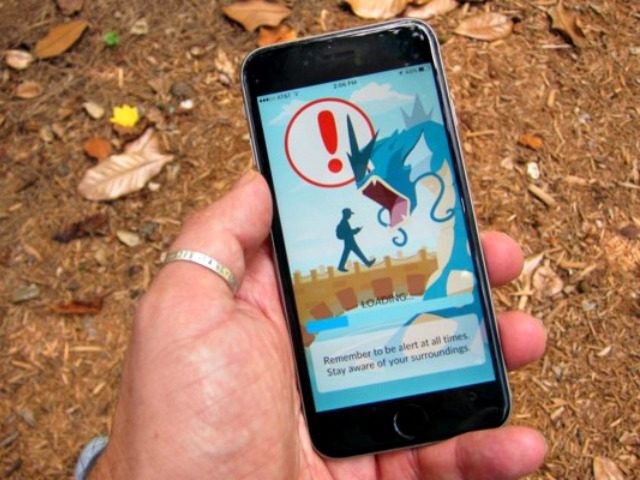The mobile phone-based game Pokemon Go has become a hit in the more affluent regions of the Arab world despite a long-standing fatwa on the Japanese game series accusing the monsters of inspiring deviance and promoting “Zionism.”
The game, in which players engage in a scavenger hunt to find creatures in the real world using their phone’s GPS function, is not yet officially available outside of the United States and Australia/New Zealand, but players have found a way to change their phone’s location settings to play. Qatar, the UAE, Kuwait, Lebanon and Saudi Arabia have become hotspots for the game, Saudi Arabia’s Al Arabiya reports.
“Fans in Dubai are running around the city, eyes glued to their phones, in a bid to catch the virtual Pokemons. Meanwhile downtown Lebanon last night witnessed people hunting for the fantasy characters,” Al Arabiya notes, citing millions of tweets from players in those nations’ urban centers as evidence of how widespread play has become.
There are at least two Facebook pages dedicated to Saudi players of the game, with one player posting screencaps showing how prominent Riyadh landmarks appear in the game.
In Dubai, landmarks like the Burj Khalifa serve as congregation centers for the game. According to that nation’s The National newspaper, Emirati authorities are concerned that the game may present new dangers, including players not watching for traffic while crossing the street and being hit by cars. “Don’t expect cars to know you are there. We need people to take the initiative and make sure they look both ways while crossing the streets,” an Abu Dhabi police spokesman said.
In Doha, Qatar, authorities have cited another safety concern: the game demands players spend time outside in a nation where the temperature regularly surpasses 100ºF. The extreme heat has limited the mobility of players and expanded use of the app at nighttime.
Doha News is the only outlet so far citing Islamic resistance to the game, noting that some are complaining that the game is luring players to mosques, where they sit and play instead of praying. On other sectors of the internet, however, some Muslims have seen the use of mosques as Pokemon meeting centers as an opportunity to promote the religion and introduce strangers to Islam.
Islamic resistance to Pokemon when it first became popular in the late 1990s and early 2000s was much louder. As Al Arabiya notes, Saudi Arabia’s Grand Mufti issued a fatwa against the game in 2001, which still stands today. He alleged that the Japanese game was an insidious plot to promote Israel and degenerate the morals of Muslims.
“Most of the cards figure six-pointed stars, a symbol of international Zionism and the state of Israel,” Sheik Abdul Aziz bin Abdullah al-Sheik said then, according to ABC News. He noted also that the game appeared to show “crosses, sacred for Christians, triangles significant for Freemasons and symbols of Japan’s Shintoism, which is based on the belief in more than one god,” and warned that the game was “possessing the minds” of children.
Al Arabiya notes that Yousef Qaradawi, a Qatar-based cleric known as the leading religious voice of the Muslim Brotherhood, condemned Pokemon as “psychologically unhealthy” at the height of its popularity.

COMMENTS
Please let us know if you're having issues with commenting.